Washington is in danger of throwing away the leverage its allies could have given it
Martin Wolf

© James Ferguson
“It’s easy to win a race when you’re the only one who knows it has begun.
China is thus on the way to supplanting the US as the global hegemon, creating a different world as a result.
Yet it doesn’t have to end this way.”
This anxious view comes from The Hundred-Year Marathon by the Hudson Institute’s Michael Pillsbury.
Mr Pillsbury is one of the most influential American thinkers on US-China relations.
The book is more than a call to recognise reality: it is a call to arms.
On one central point Mr Pillsbury is certainly right: China’s rise is the great political event of our times.
Getting the response right is crucial. It is so easy to get it wrong.
Today, I fear, the US is getting it frighteningly wrong.
The starting point must be that, whether or not China has a plan for world economic domination by 2049 (the 100-year anniversary of the creation of the People’s Republic), that is a plausible, though not inevitable, outcome.
Other things being equal, population is decisive in determining the size of an economy.
The US is the most powerful high-income country because it has the biggest population, by far.
But the population of China is to the US’s, roughly what America’s is to Germany’s.
Nobody could now imagine a world in which Germany’s economy is comparable in size to that of the US.
Similarly, why should we imagine that the US economy will remain indefinitely comparable in size to that of China?
There can only be one answer to this question.
US output per head will remain far higher than China’s, permanently.
At market prices, China’s gross domestic product per head in 2018 was just 15 per cent of US levels.
That is very close to Turkey’s (and ranks 72nd in the world).
Imagine, however, that China achieves Spain’s output per head, relative to the US.
Its economy would then be twice the size of that of the US, at market prices (and close to three times as big in terms of purchasing power).
Is it plausible that China will, over the next three decades, achieve a GDP per head relative to the US comparable to that of Spain today?
Of course it is.
Does anybody doubt that the Chinese people are capable of this?
But what is plausible is not inevitable.
It is possible, instead, that Xi Jinping will be remembered as China’s Leonid Brezhnev.
Brezhnev closed down all thoughts of economic and political reform in the Soviet Union from 1964 to his death in 1982.
He emphasised communist orthodoxy and party discipline.
The result proved a disaster for the USSR.
His conservatism bore direct responsibility for the subsequent collapse.
It is conceivable that Mr Xi’s re-establishment of party discipline and the role of the state in economic life will have similar consequences for China.
But what is conceivable is not inevitable.
China also has a vigorous market economy and a studious bureaucracy.
It may avoid this trap.
In sum, what Mr Pillsbury views with horror is not just plausible, but natural.
What, short of war, could the US do to stop it?
The answer is: not much.
Yes, it could halt its imports from China and try to halt all transfers of technology, too.
Such actions would hit China’s development, but they are unlikely to halt it.
Only Chinese blunders, always possible, are likely to do that.
This is a cry not for defeatism, but for the realism Mr Pillsbury himself calls for.
China is likely to become the world’s greatest economic power because it is both big and competent.
Yet even if the US does not remain the world’s largest economy over the decades ahead, it should retain three significant assets: a law-governed democracy; a free-market economy; and economically powerful allies.
These are sources, respectively, of admiration, dynamism and strength.
Unfortunately, the US is trashing them all.
President Donald Trump seems ignorant of what a liberal democracy is.
The US economy is slowly morphing into rentier capitalism.
It has also become an unreliable and even outright hostile ally — ask the Germans.
The last might be the biggest blunder of all.
For military strength, the US has in truth to rely mainly upon itself.
But in economic policy or human rights, it does not.
The US’s allies bring enormous extra weight to the table (unlike Russia, China’s only potent ally).
Take trade: China’s exports to close US allies far exceed those to America alone.
Many of those allies also share US concerns over market access, poor protection of intellectual property and China’s demand to be treated as a developing country.
Yet the US has thrown away the leverage its allies could have given it.
If it had promoted a negotiation with China inside the World Trade Organization on these issues, in concert with its allies, it would have enjoyed both more leverage and the moral high ground.
It is, of course, not enough for the US to appreciate its resources.
It also has to know what to do with them.
It is not to make itself an enemy of the Chinese people’s legitimate desire for a better life.
Still less is it to dream of overthrowing China’s political system.
Such aims are neither reasonable nor achievable.
It is to stand up for an open and dynamic world economy, based on market principles, to defend freedom of speech and to challenge abuses of human rights in China itself.
But it is also to recognise that, if humanity is to achieve economic progress, maintain peace and preserve the global commons, a high degree of co-operation must also exist between the superpowers.
In dealing with China, the US and its allies need to confront, compete and co-operate across multiple domains.
Today, this seems inconceivable.
Instead, we are looking at a crumbling alliance and a fraught relationship between the US and China.
None of this augurs well for humanity’s future.
Remember: it could be so much better.
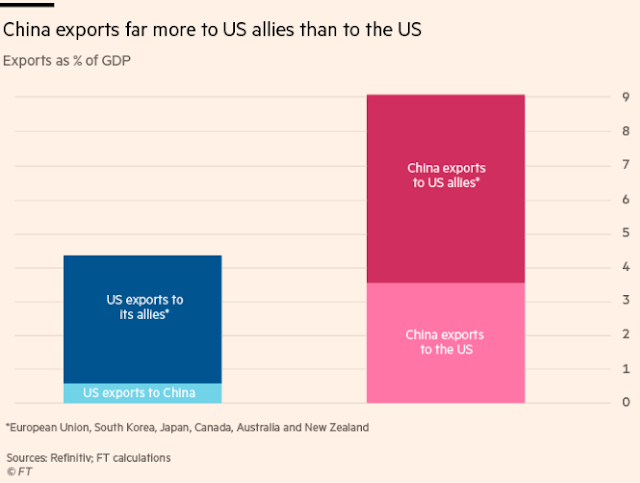
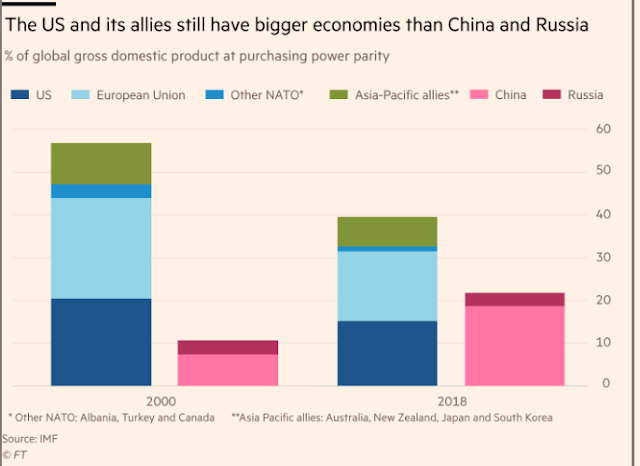

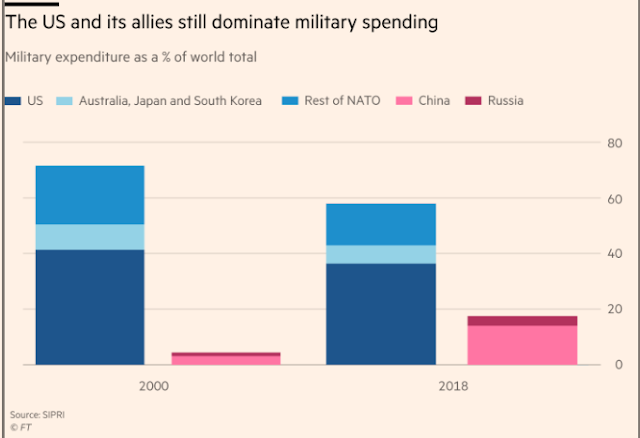
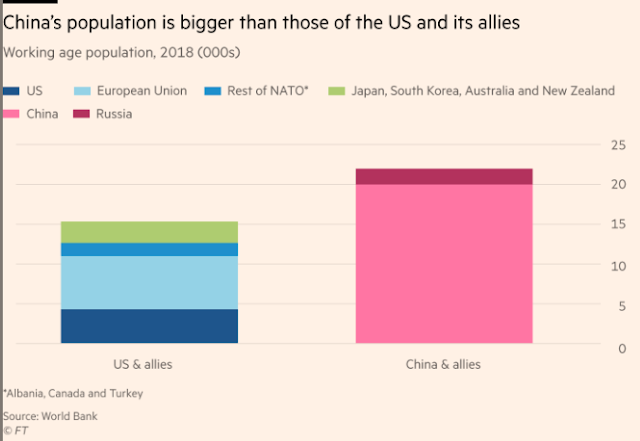
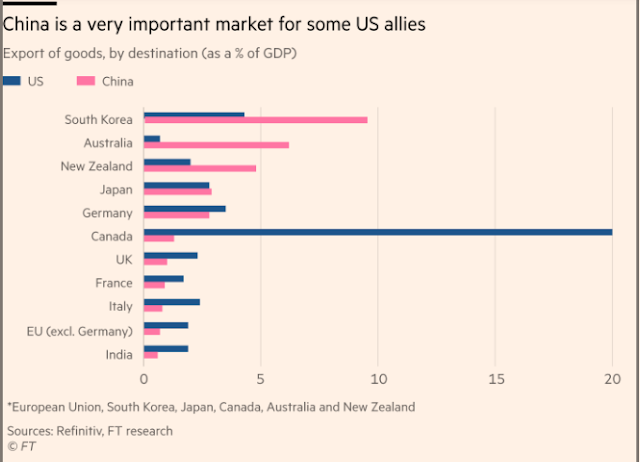
0 comments:
Publicar un comentario